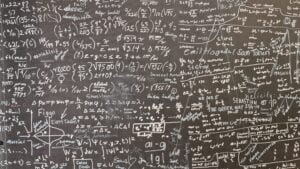Analytic Functions: A Fundamental Concept in Complex Analysis
The study of functions of complex variables falls under the umbrella of complex analysis in mathematics. One of the key concepts in complex analysis is that of an analytic function. An analytic function is a complex-valued function that is differentiable at every point within its domain.
Formally, let f(z) be a function of a complex variable z = x + iy, where x and y are real numbers. The function is considered to be analytic at a given point in the domain if the limit of the difference quotient exists as z approaches that point. In other words, an analytic function can be locally approximated by its linearization, just like a differentiable function in real analysis.
Analytic functions possess several important properties. For example, they can be expressed as power series expansions, which allows for efficient computation and approximation. They also satisfy the Cauchy-Riemann equations, which provide a necessary condition for a function to be analytic.
Cauchy-Riemann Equations: The Link between Analytic Functions and Holomorphicity
The Cauchy-Riemann equations are a system of partial differential equations that link the real and imaginary parts of an analytic function. Let f(z) = u(x, y) + iv(x, y), where u and v are real-valued functions of two real variables x and y. The Cauchy-Riemann equations are given by:
∂u/∂x = ∂v/∂y
∂u/∂y = -∂v/∂x
These equations express the fact that the partial derivatives of u and v satisfy a certain symmetry condition. If a function f(z) satisfies the Cauchy-Riemann equations, then it is said to be holomorphic in its domain. Holomorphic functions are a special class of analytic functions that have particularly nice properties.
The Cauchy-Riemann equations also provide a useful tool for determining whether a given function is analytic. By checking if the partial derivatives satisfy the equations, we can determine if the function is analytic or not. If the equations are not satisfied, then the function is not analytic, and we cannot use techniques specific to analytic functions.
Harmonic Functions: A Special Case of Analytic Functions
A real-valued function that satisfies Laplace’s equation, a second-order partial differential equation, is called a harmonic function. A harmonic function is the real component of an analytic function in the context of complex analysis. That is, if f(z) = u(x, y) + iv(x, y) is an analytic function, then u(x, y) is a harmonic function.
Harmonic functions have a wide range of applications in physics, engineering, and other scientific fields. They arise naturally in problems involving electrostatics, fluid dynamics, and heat conduction, among others. The study of harmonic functions is closely related to potential theory and the theory of partial differential equations.
One important property of harmonic functions is that they satisfy the mean value property. This property states that the value of a harmonic function at any point is equal to the average of its values on any sphere centered at that point. This property has important consequences for solving boundary value problems and understanding the behavior of harmonic functions in various domains.
In Conclusion
Analytic functions, Cauchy-Riemann equations, and harmonic functions are all fundamental concepts in complex analysis. Analytic functions are differentiable complex-valued functions, while the Cauchy-Riemann equations provide a necessary condition for a function to be analytic. Harmonic functions are a special case of analytic functions and satisfy Laplace’s equation. Understanding these concepts is crucial for exploring the rich and beautiful theory of complex analysis and its applications in various fields.





















+ There are no comments
Add yours